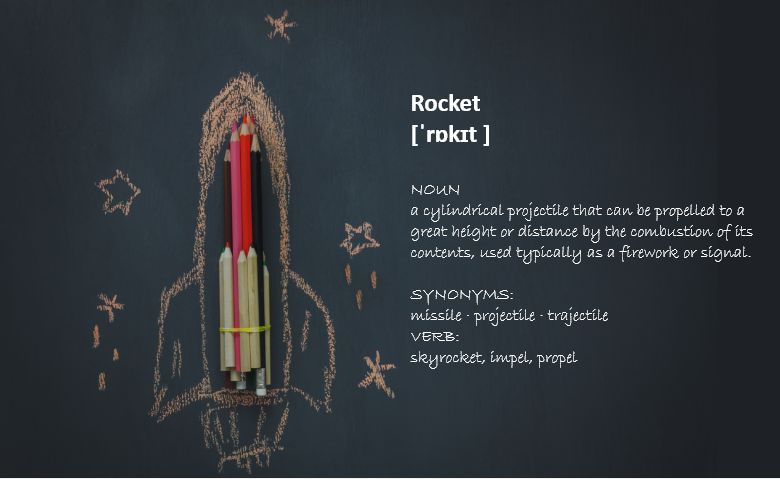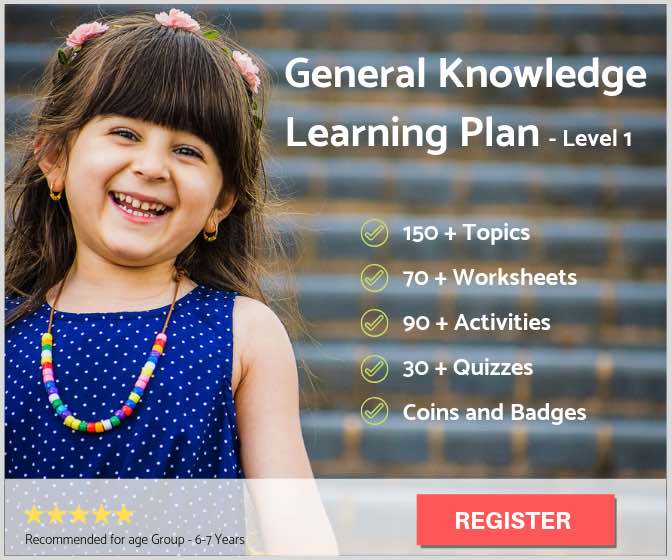A child’s vocabulary refers to the set of words that a child knows, understands and uses in his/her conversation or writing. A robust vocabulary forms the basis for your child’s comprehension and cognitive skills. It is the foundation for any communication and acquiring of knowledge.
Your child’s vocabulary usually develops with age. As parents, you can be instrumental in providing them with the right platform and environment to help build and improve their vocabulary. Needless to say, the home is the first place where any learning starts.
Before we look at some simple and easy ways for parents to help build your child’s vocabulary, let’s understand the vocabulary types and milestones.
Vocabulary Types
Vocabulary is broadly classified as:
- Receptive Vocabulary – Words that a child knows and decodes but may not reproduce them in speech or writing. Receptive vocabulary helps a child to understand what others say.
- Expressive Vocabulary – Words that a child knows and can reproduce with proper grammar principles in his or her writings and conversation. Expressive vocabulary helps a child to express thoughts through words.
Educators believe that both receptive and expressive vocabulary together help your child in enhancing their learning ability. However, the milestones for the number of words that form your child’s vocabulary vary for different age groups.
Vocabulary Milestones
Age-appropriate vocabulary development is important for children. Educators and academicians have recommended milestones for vocabulary development for different age groups:
- Toddlers ideally have a 15+ word vocabulary. They may not speak all the words but can understand or point them out or express the essence in other ways.
- Kindergarten children, age 4+, have a vocabulary of at least 2100 words.
- Primary school going 6-year-olds have 2500 words in their expressive word bank, while they may decode 20,000+ words when they come across them in books or other reading material.
- High school kids (12+ years) can aim for the 50,000
+ word bank .
Why the Emphasis on English Vocabulary at an Early Age?
English is recognized as one of the most spoken languages in the world. It is a common language of communication, be it within a country or internationally. In countries like India where English is not a native language, most children acquire linguistic skills first in their native language. Children typically learn English as a communication and comprehension language only when they start going to school. Therefore, their English communication and comprehension skills are limited.
Going by the development milestones, nine-year-olds are expected to read by themselves without help. This enables them to explore new concepts and material to increase their knowledge, be it academic or non-academic. A good and large receptive and expressive vocabulary gives them the right push.
Truth be told, children are like a sponge and can easily pick up a new language when they are guided in the right direction. While school follows a set pattern, parents can take the initiative to help their child in building their vocabulary and language.
How to Build and Improve Your Child’s Vocabulary?
To build vocabulary, a one-time introduction of a word is not enough. Repetition and regular use can help your child to add new words to their vocabulary. In other words, you need to have multiple ways in which you can introduce new words so that they get added to your child’s vocabulary.
Here are ten simple ways to help your child build and improve their vocabulary skills:
1. Inculcate reading habit in your child
This is the easiest and the best way to build a child’s vocabulary. Some pointers on how to improve vocabulary through reading:
- Help them select age-appropriate books that the children can read and enjoy.
- Choose a variety of reading material – could be an encyclopedia, comic book, children’s magazines, fictional or even non-fictional books. Make sure that the material is child-friendly.
- Follow a routine to read with them and discuss – probably an hour over a weekend. Children will look forward to it if you make it interesting with a mix of good books and lively interaction. As a result, you also get to spend quality time with your child.
- Read a book aloud in an expressive way. Children observe a lot. Seeing you read and express, they will follow and learn new words, their meaning and pronunciation.
6 – 8 years kids
9 – 11 years kids: Encourage them to read by themselves. However, be patient even if they make mistakes. Subsequently, gently tell them where they have gone wrong so that they can correct it the next time.
12 + years kids: Motivate children of this age to read newspapers, encyclopedias and journals with ease. Create an interest in them to participate in language competitions published in these newspapers / books. Encourage them to send write-ups for children’s magazines and school magazines. Let them enjoy writing about diverse topics such as how they enjoyed their day or where they travelled last summer.
Top 7 must read books for 5-8 year old kids
2. Teach simple or complex word and its meaning based on your child’s age
Each child is different. Their age and current vocabulary will guide you to determine the new words that you can introduce. Start with simple words and gradually, move to more complex ones. It would of course not be prudent to teach complicated words to a 6-year old. Don’t rush with things or pressurize them.
For example, consider the word “kind”. Children in the age group of 6 – 8 can understand this word. However, “compassion” involves more letters and is more complicated than “kind”, so teach it to children above the age of 8 years.
Children in the age group of 6 – 8 years typically find it easy to learn concrete words (physical objects) such as car, bus, men, pencil etc. A little older ones (8 – 12 years) can learn abstract words such as justice, success, generosity etc.
3. Have fun with vocabulary games
When learning comes in the form of play, children have more fun learning! Games are an interesting way to build and improve vocabulary, so use them as much as you can. Here are some fun games to get your child’s attention:
- Unscramble words based on the age of the child: Younger kids can unscramble 3 to 7 letter concrete words, while older ones can unscramble the abstract and complex words.
- Flashcards: They are very popular across the world. You can use flashcards in various ways, a few are mentioned below:
- Memory game
- Use a minimum of 20 cards for this purpose.
- Print or write down each word on two cards and shuffle the flashcards well.
- Lay them face down on the table.
- Now, ask your child to match cards. Once they are able to do for a word, explain the meaning of that word.
- Matching game
- Use a minimum of 10 cards for this purpose.
- Print or write down a word on a card and its meaning on another. You can also include a contextual sentence using that word.
- Give your child the cards with the meanings of the words.
- Show a card with a word and ask your child to pick the card with the correct meaning of the word.
- Guess the meaning
- Write a new word on one side of the card and its meaning on the reverse.
- Place cards in a bowl.
- Ask your child to pick one and give it to you without looking at the word.
- Say out the word and ask your child to guess the meaning and spelling.
- Memory game
- Charades: Charades is a game loved even by adults. Hold a card or slip of paper that contains a new word. Act out the word. Once the child guesses it, ask for the spelling and its meaning. Explain it, if they don’t know. This enactment of the word or its context will help in the retention of this word in your child’s vocabulary.
- Topic games: Choose topics like food, animals, kitchen essentials etc. Ask your child to say a word related to the topic and then, you say another word related to the same topic. If you are cooking in the kitchen, ask your child to name all the vegetables in the refrigerator. Motivate them with easy rewards if they are able to identify a certain number of vegetables and their spellings correctly.
- Other popular games: Some other popular vocabulary games are Pictionary, Hangman and Scrabble. You can also find some wonderful online games to improve vocabulary.
4. Initiate a conversation in English regularly
Research shows that the early years are the best years for learning. While their brain develops, children have the ability to absorb and grasp a new concept or language quickly.
If you shift to a new city or country, you will notice that your child learns the local language much quicker than you. They absorb as they hear the local language conversations at school, local shops, in hotels and public places. Even though adults hear the same conversation, a child can get it much more easily and quickly.
Therefore, a good conversation is vital for language development. Although children hear more of their native language at home, parents can make conscious efforts to converse in English for at least an hour every day. However, make it a casual conversation so that the child enjoys being a part of it. This will also be a good way to enhance their knowledge based on their curiosity. Most importantly, it will help them to be confident and fluent while speaking the language.
You can initiate a conversation about different topics based on the age, comfort level and interest of your child. Some of the topics could be:
- A recent book that they read.
- Their day at school.
- Their play area and friends.
- Daily use household goods, what are they made of, what are they used for etc.
- Emotions and feelings they are going through. It will be a good opportunity to introduce appropriate words to express their emotions, such as happy, sad, excited.
- Socializing with people and using words such as hello, good morning etc.
- Values such as honesty, punctuality etc.
- Anything and everything that you regularly converse in the native language.
5. Let their creativity flow
Give them a list of words and ask them to write a story or their experience using those words in the right context. You can give them a starting point to pick up from or leave it all blank for them to think.
The number of words and their complexity can vary based on the age of the child. But, let their imagination run wild. You will surely be surprised by their creativity.
6. Use synonyms, antonyms, word forms
Synonyms, antonyms and other word forms are a great way to build your child’s vocabulary. Let’s see some examples:
- Depending on the age, instead of saying the dinosaur is big, you can introduce them to synonyms such as huge/gigantic. In this way, your child will learn new words. Do not forget to explain the meaning, spelling and pronunciation of new words.
- Word Forms exercises:
- 6 – 8 years: Pick up a word that they know and have a discussion to explain the other forms. You can introduce nouns and verbs while discussing the different forms of a word.
- 9 – 12 years: Teach them prefixes and suffixes and exceptions to the rule.
Reference Worksheets English worksheets for Class 1 (Nouns, Verbs, Pronouns) English worksheets for Class 1 (Adverbs, Articles, Modals) Conjunctions, Punctuations, Opposites worksheets for Class 1
7. Practice with Vocabulary tests
You can create simple vocabulary tests, either verbal or written, to help your child with their word power. They can be in different formats, such as:
Create formats with questions such as
- choose the correct answer,
- match the following and
- identify the picture
Such tests provide them with a challenge and allow them to explore their own potential.
8. Use the Association technique
Relate words to your child’s life and familiar environment to build an association with what they already know. Association to a known person, place, occasion, festival or event helps make the learning personal. So, your child will be able to retain the words in their vocabulary and use them appropriately.
Your child’s favourite festival may let you introduce new words that describe how they celebrate the festival or what the festival stands for. Likewise, the change of season may help you talk about things associated with that season – what they wear, how they feel etc. Similarly, a friend’s birthday party can set the stage to talk about words related to planning a party, inviting guests, deciding snacks etc.
9. Take help of online resources
In today’s era of technology, the Internet can be a great tool to leverage. Take help from the Internet to find new vocabulary tests, games and methods to help your child build a robust word bank.
Make the most of the worksheets and the other resources available online by joining the English Language Skill courses designed by experts in this field.
10. Encourage your child when they speak or write in English.
Encourage them to talk a few sentences on a topic or about themselves in the English language.
- Ask them to speak in front of you first, then gradually a bigger audience such as other family members and friends. Remember to go to the next step only when the child is comfortable and confident.
- Encourage constantly
- Ask them to write down daily or travel experiences
- Be patient and provide necessary motivation even if they falter.
To sum up, English vocabulary is built with learning and experiences. Make it fun for them and invest in some we-time, a little patience and a few vocabulary activities with your child can make you see how your child goes from strength to strength.


